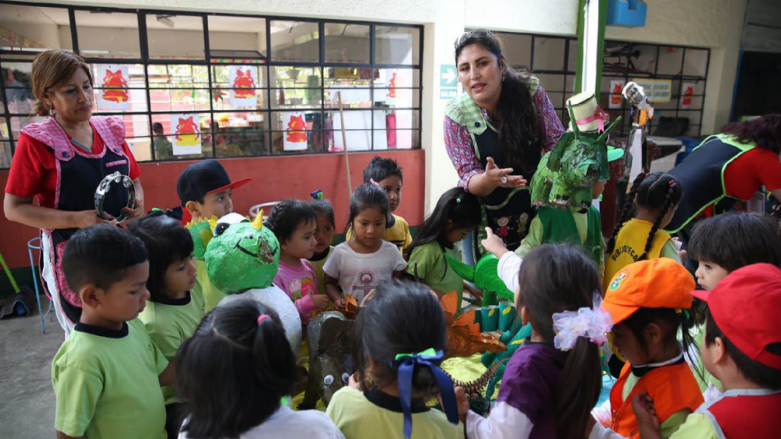Challenge
In 2012, the government of Peru was highly committed to tackling the challenge of achieving more inclusive growth and reducing social gaps. Improving the country’s human capital base was considered essential to its future success. Ensuring low-income and vulnerable children access to good-quality basic education was key to unleashing their continuing skills formation and future productivity. While Peru had near-universal primary education, had tripled access to preschool education in the preceding five years, and had raised the secondary school enrollment rate above the regional average, its schools graduated high numbers of students lacking basic mastery of mathematics and literacy skills. Of the nine Latin American countries participating in the 2009 Programme for International Student Assessment (PISA) exam administered to a sample of 15-year-old students, Peru finished last. In response, the government launched a results-based budgeting program for student learning, Programa de Educación Logros de Aprendizaje (PELA, Education Program for Learning Achievements) to raise learning outcomes in public schools.
Approach
The Basic Education Project focused on three critical aspects of PELA that together were expected to help achieve Peru’s high-level objective of improving student learning outcomes: (i) scaling up and benchmarking student learning assessments; (ii) designing and implementing teacher evaluations; and (iii) evaluating and training school leaders. The Ministerio de Educación (MINEDU, Ministry of Education) had introduced a results-based approach to prioritizing public resource allocation to a comprehensive set of sectorwide strategies and activities, including PELA. The government’s budgetary framework linked the financing of the project’s activities to expected results in terms of improvements in student learning. Following a sectorwide approach (SWAp), the project financed a subset of PELA activities, using PELA’s results-based approach of loan disbursements triggered by MINEDU’s achievement of agreed disbursement-linked indicators. The project was restructured several times, most importantly to support implementation of the 2012 Teacher Reform Law by financing the design of evaluation instruments and processes required to make recruitment and promotion merit-based and to initiate performance evaluation and feedback processes for teachers.
